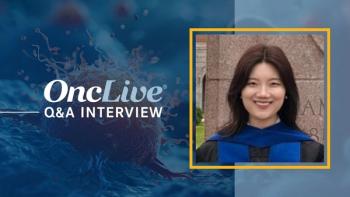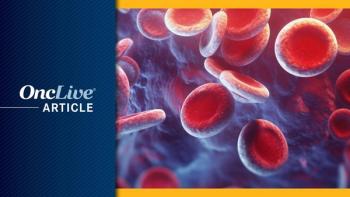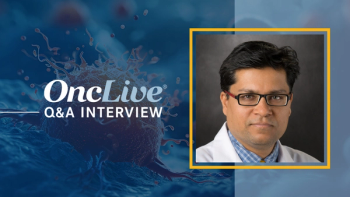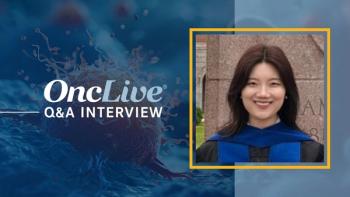
Future Directions in Mantle Cell Lymphoma
Bijal Shah, MD:A major unmet need for mantle cell lymphoma is how we manage these higher-risk patients when they present to us in that fashion. What does it mean for a mantle cell patient walking in my door with proliferative TP53-mutated mantle cell lymphoma? We know that, based on the data from the European mantle cell group, high-dose chemotherapy and transplants are not really likely to provide much benefit for that group of patients. Lenalidomide and rituximab may have some activity just by virtue of being a little more TP53 independent. But when they’re very proliferative, it’s very hard to get a patient through that 2- or 3-month course that’s needed to realize that benefit.
We still have this population of mantle cell lymphoma that’s begging for something. We tried ibrutinib. At least in relapsed cases, we know single-agent ibrutinib is not very effective in managing this group of patients. We know that Rituxan adds a little, but most, if not all, patients progress by 6 months.
We have an ibrutinib-venetoclax trial and a ibrutinib-Rituxan-venetoclax trial that are ongoing in newly diagnosed mantle cell lymphoma patients, and it will be very intriguing to see whether there is a benefit for those who have TP53 mutation, particularly if they have proliferative disease with that TP53 mutation. If we can find a benefit there, that may help address this very significant unmet medical need. My own anecdotal observations are that it’s unlikely that a BTK is going to be effective in the frontline setting, even in combination with venetoclax, for these very high-risk patients. What this says is, what do we do with the ibrutinib? Even if we bring it front line, if we can get a transient response, are we now in a position where we say the next step is CAR [chimeric antigen receptor] T-cell consolidation based on some of these data that were presented as part of the ZUMA-2 trial, and hopefully as a step forward from what I hope will be FDA approval.
That’s a big question. Alternatively, you could say it’s allogeneic stem cell transplant. We don’t have a lot of data for allogeneic stem cell transplant in large part because allogeneic transplant for lymphoma is not something routinely embraced by the Medicare guidelines. The median age of mantle cell is 68 [years old]. Most of our patients will be on Medicare, so it makes it very hard to really ask and answer questions about the impact of allogeneic transplant in this particular population, let alone the safety of doing reduced-intensity transplants and the like for this group of people.
A major unmet medical need for mantle cell lymphoma remains what to do for those who present with very high-risk disease up front. A second major unmet medical need is what to do for those patients who relapse after CAR T. It’s not just diffuse large B cell now. We’re talking about bringing a CAR T-cell therapy for patients with mantle cell lymphoma. I’m absolutely excited by the 60% event-free survival at 2 years. That is phenomenal. But that still means that 40% are progressing. We need to understand what to do for those individuals. Is it going to be coming in with an alternative form of immune therapy, like an allogeneic CAR T-cell therapy or a lenalidomide or something along those lines? Are we going to see something like we see with the PD-1s, where you treat with a high-potency immune therapy and, for reasons that are less clear, you sensitize them to subsequent chemotherapy after the fact? These are all unanswered questions. But this is the other major unmet medical need in mantle cell lymphoma.
Transcript Edited for Clarity



































